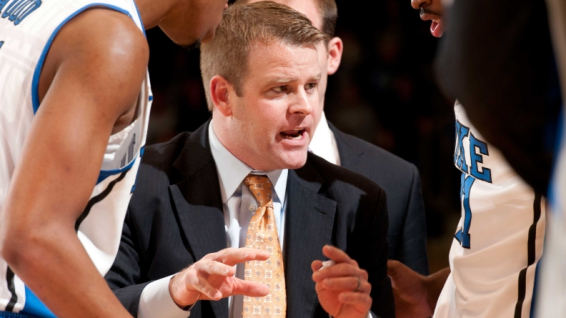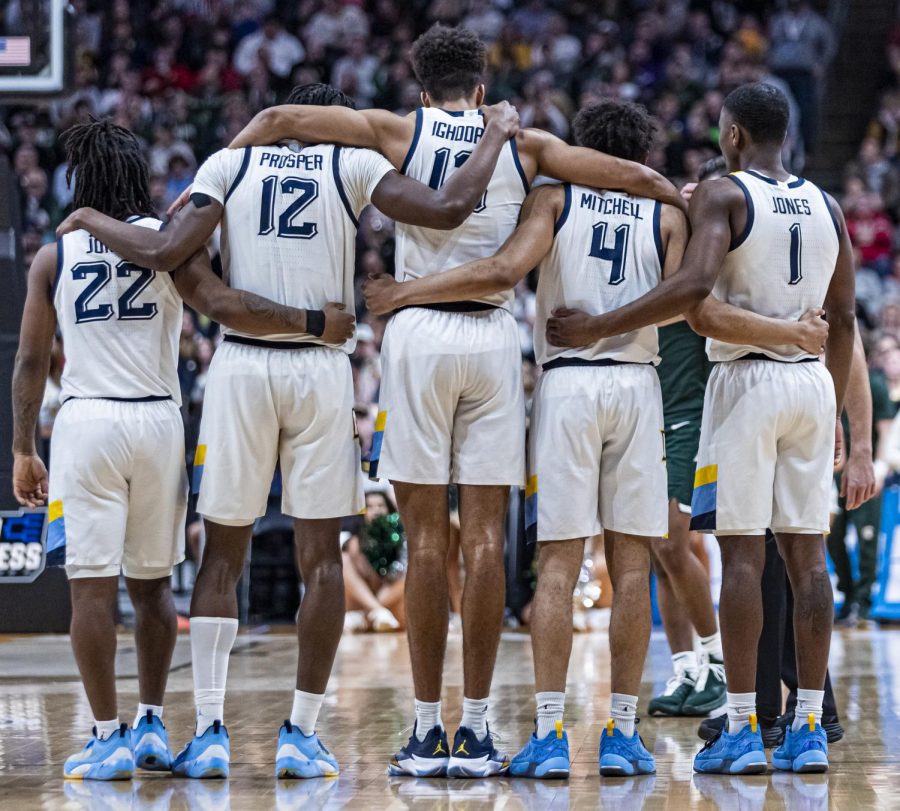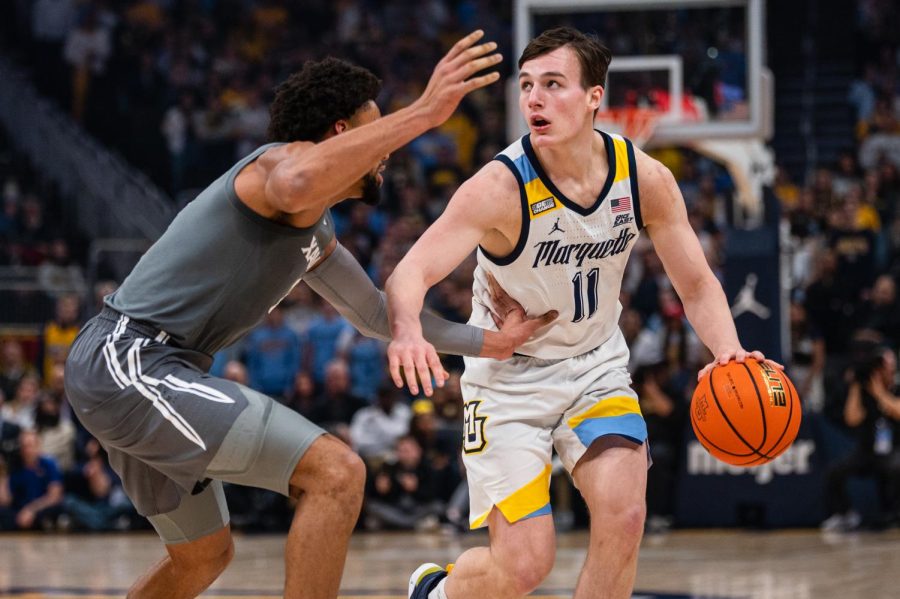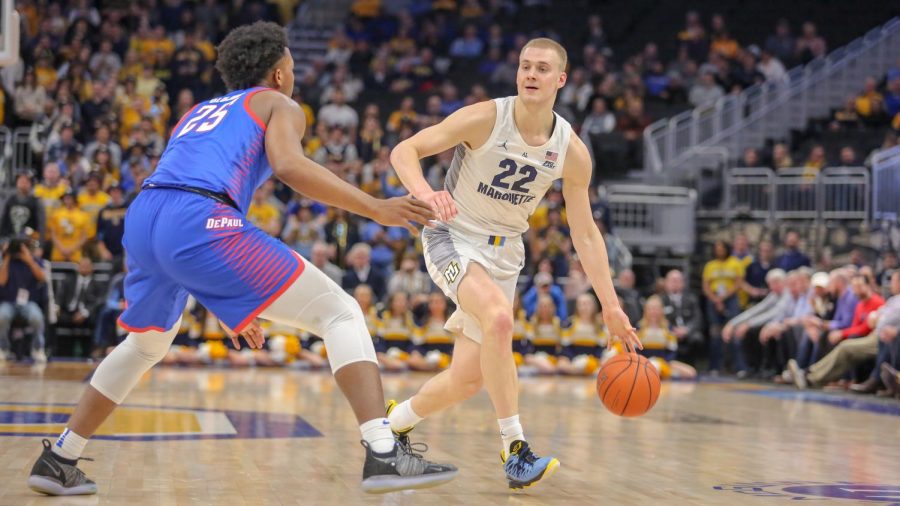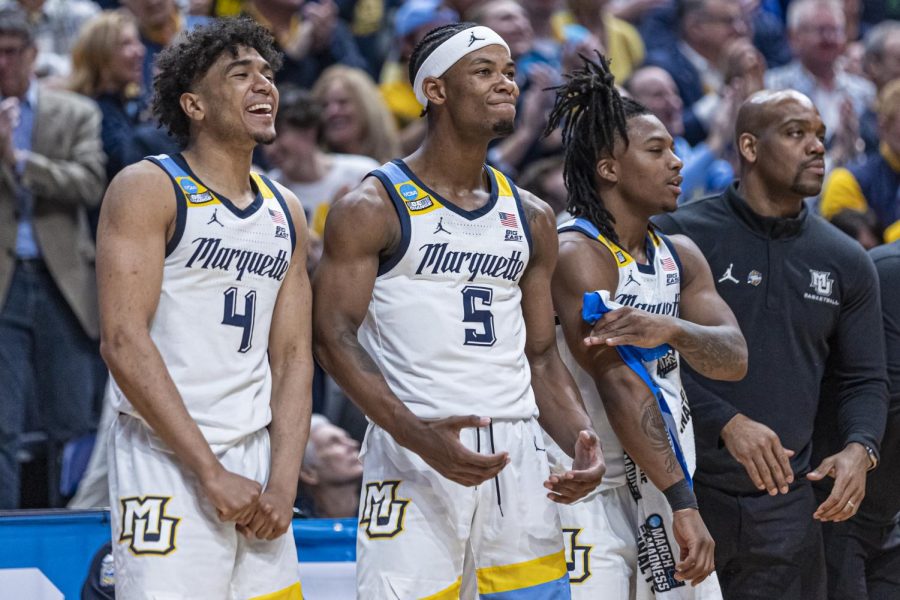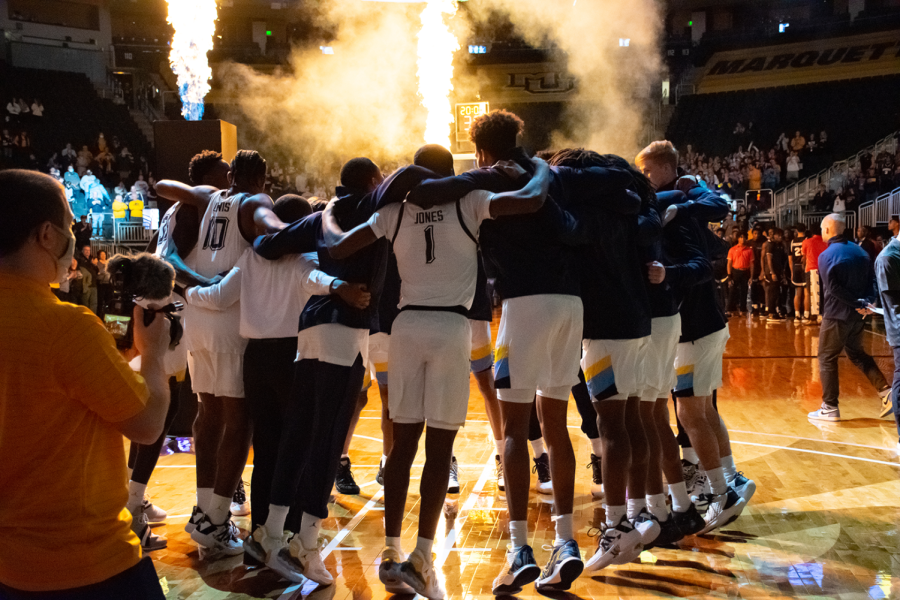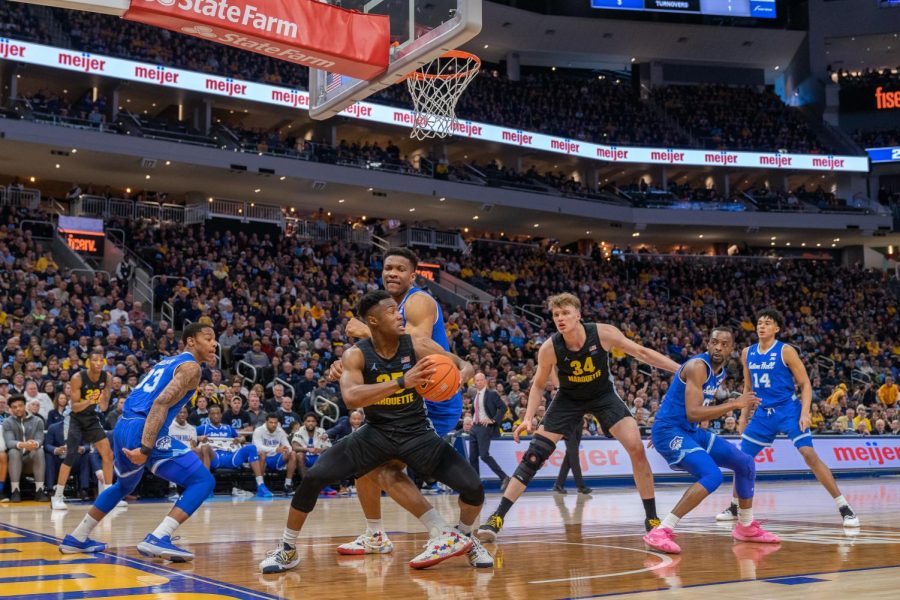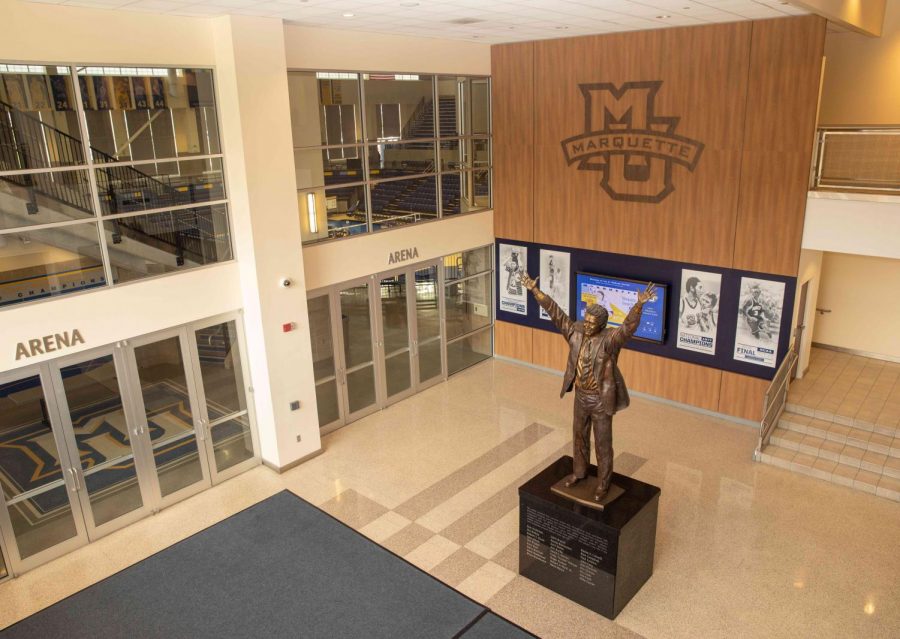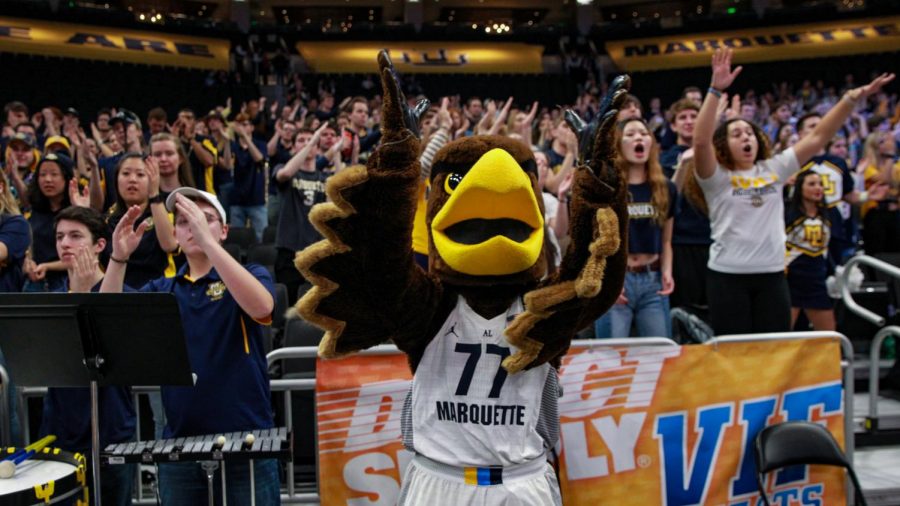Don’t hurl insults at teenagers on the internet. It’s an impossibly simple, reasonable rule; one that should be so deeply embedded into everyone’s moral code that it doesn’t even bear mentioning. Alas, we don’t live in that world.
Joey Hauser made his college choice Sunday, committing to Marquette instead of Wisconsin. It’s natural that Badgers fans would feel disappointed; the two schools are rivals, and Hauser is an incredibly talented in-state player. Nobody’s arguing that fans shouldn’t care about recruiting or the future prospect of their programs.
What’s not okay is commenting on the Twitter status announcing his commitment to trash his choice. Behold, the reason we cannot ever have nice things:

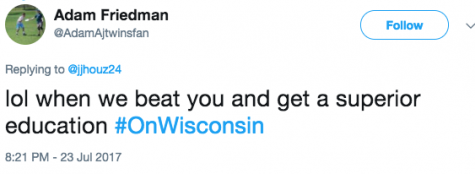

As bad as this is, it’s actually a tamer version of what some Wisconsin fans did to Diamond Stone, the last highly rated in-state recruit to spurn the Badgers. After Stone posted a few tweets that tweaked the Badgers for losing to Duke in 2015, his mentions filled up with hateful messages that falsely mocked him for having a low ACT score. In an article about the Twitter onslaught, Washington Post writer Dan Steinberg said:
I’m sure this does not represent all Badgers fans, a majority of Badgers fans or even a sizable minority of Badgers fans. The point here isn’t about Marquette vs. Wisconsin; although it’s worth noting that almost no Marquette fans did this to Badger recruit Tyler Herro when the roles were reversed. Still, I’m sure some denizens of MUBB Twitter have been less than pleasant at some point, so let’s call it a wash.
No, my message is more of a universal plea to college sports fans all across the country: Please get out of high school players’ Twitter mentions if you’ve got nothing positive to say. Recruits just want to play sports and have a normal high school life otherwise. They didn’t ask to be a wrestling heel and they certainly didn’t ask for the internet’s critique of their college choice.
Behind the vitriol is an even more insidious idea: that a college athlete’s sole purpose is to provide the fan with entertainment. It reminds me of an adage from the Irish playwright George Bernard Shaw about patriotism, which he defined as “a conviction that a particular country is the best in the world because you were born in it.” The same principle applies to school rivalries and athlete’s roles in them. Those Wisconsin fans in Hauser’s mentions didn’t just think their school was the best; they’d also resolved that any athlete who disagreed wasn’t worthy of decency.
(Before I’m accused of bias, allow me to note that I feel the exact same way about Marquette fans in the Bradley Center chanting “f*** the Badgers.” In the enduring words of one Obi-Wan Kenobi: “So uncivilized.”)
“But Andrew, rivalries are a part of what make college sports great,” some might say. That’s absolutely true. I’m not advocating against rivalries, nor am I arguing that players aren’t a part of them. That said, there are far better places and times to legislate the Marquette vs. UW-Madison debate than a 17-year-old’s Twitter account on the night he chooses a college. By “better places and times,” I of course mean “literally any other place or time.”
It’s possible — easier, even — to carry on a great basketball rivalry while still showing some level of respect for your opponent. Check out these good guy Badgers fans, both of who responded to a 17-year-old’s college decision in exactly the way you’d expect a rational person to respond:


That’s probably the kind of cordial reception you got when you went to college, even if it was a college that some people close to you didn’t like, right? Imagine instead that on the day of your college commitment, a seminal moment in your life, a bunch of strangers told you “terrible choice” or “enjoy never getting a job.” Think about whether there’s anything normal about that. Then go outside and take a long walk so you can either alleviate or prevent creeping insanity.
Of course, Twitter trolls will always argue that they have a right to say these kinds of things. It’s not the world’s best use of the First Amendment, but OK, fine. At some level, though, these people must know that “because I can” is a child’s argument, the loosely gussied up version of “you’re not the boss of me.” Having the right to do something does not release any of us from the obligation of asking whether it’s morally justifiable to do that thing.
It doesn’t take a whole lot of courage or originality to stand up and say, “Hey, harassing teenagers on the internet is a bad idea,” but it needs to be said nonetheless. There is a direct line between being an inconsiderate jerk on the internet and being an inconsiderate jerk in real life. If the last two years should have taught us all anything, it’s that ignoring obnoxious, boorish behavior doesn’t work. The bar for acceptable discourse is lower than ever nowadays; we really should insist that everyone at least make an attempt at clearing it.
So in that spirit, everyone should leave every high school recruit alone. There is no burn that is funny or clever enough to justify hitting the send button. And if there are people who still remain compelled to call a 17-year-old a loser for throwing balls through hoops in a different uniform — as there undoubtedly will be — we can at least remind them that they’re spending a beautiful Sunday evening in front of a computer, tweeting insults into the void.



